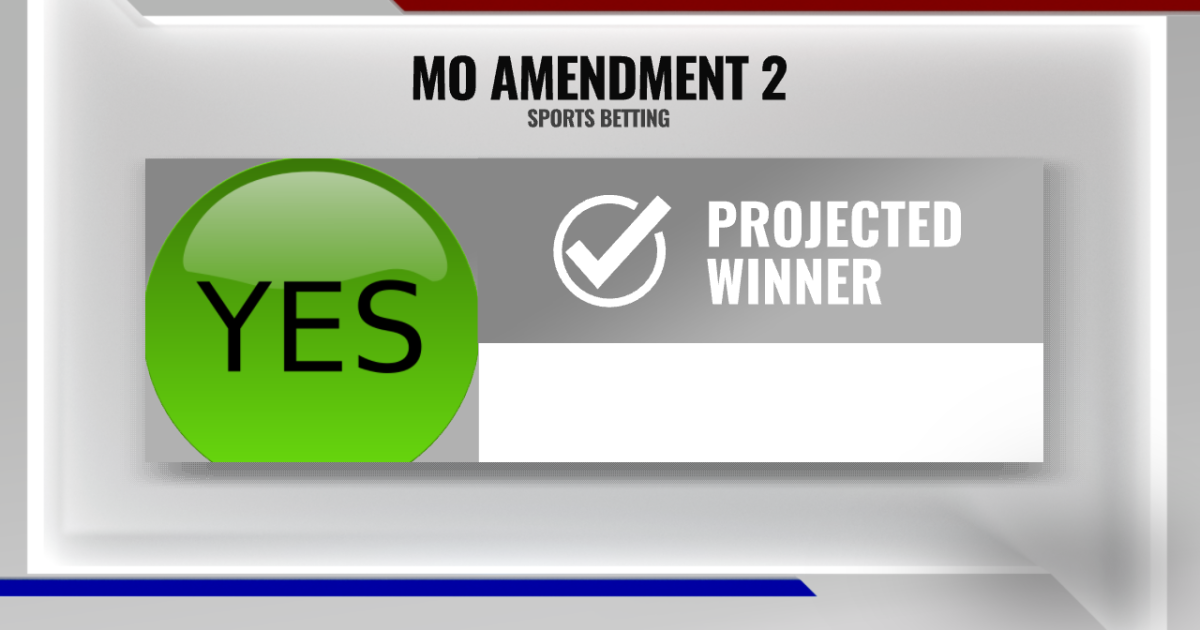
KANSAS CITY, Mo. — Sports gambling is coming to the Show-Me State.
Missouri voters passed Amendment 2 on Tuesday with 50.1% of the vote, according to unofficial election results.
The amendment passed by a margin of less than 7,500 votes or 0.256%. The possibility of a recount can be triggered at 0.5% or lower in Missouri.
A recount could be requested, but there are no automatic recounts in Missouri.
The Missouri Gaming Commission has until Dec. 1, 2025, to roll out legal sports betting at casino sportsbooks and on mobile gaming apps statewide, an outcome some view as long overdue.
Illinois legalized sports gambling more than five years ago, and the Kansas Legislature legalized sports gambling more than two years ago.
But efforts in the Missouri Legislature to follow suit — and keep tax revenue from the state’s largest population centers, St. Louis and Kansas City, from leaking across the state line — have become bogged down in the GOP in-fighting.
Sports betting is also legal in five other states that border Missouri — Nebraska, Iowa, Kentucky, Tennessee and Arkansas. Oklahoma is the only border state holdout.
That opened the door for the nation’s largest mobile gaming operators, FanDuel and DraftKings, to spend millions on a successful initiative-petition effort to put the issue before voters, who overwhelmingly supported it in Jackson (58.1%), Clay (55.8%), Platte (60.4%) and Cass (57.1%) counties as well as Kansas City, Missouri (64.3%).
Adjusted gross gaming revenue in Missouri, essentially the amount of money lost on wagers minus allowable operating expenses and deductions, will be taxed at 10%, which is one of the lower rates among the 39 states that have legalized sports gambling. But it’s identical to the rate in Kansas.
Initially, the Illinois Legislature set its tax rate at 15%, but they have since passed a progressive tax structure, which went into effect in July 2024.
Similar adjustments in Missouri would be difficult because sports gambling passed as a constitutional amendment. Thus, changes would be subject to another statewide vote.
Amendment 2 requires tax revenue to go to the Missouri Department of Elementary and Secondary Education. Proponents claim it could raise more than $100 million in the first five years.
On average, Missouri has spent $10 billion on education each of the last five years, so sports-gambling revenue won’t be a massive boon for public education — but it is new tax revenue for Missouri.
Nearly $4.4 billion has been wagered in Kansas since sports betting became legal on Sept. 1, 2022. The state has received more than $20 million, which it earmarked to help attract professional sports teams.
The new law, which casino operator Caesars Entertainment opposed, forbids prop bets on collegiate players at Missouri-based colleges and universities.
—